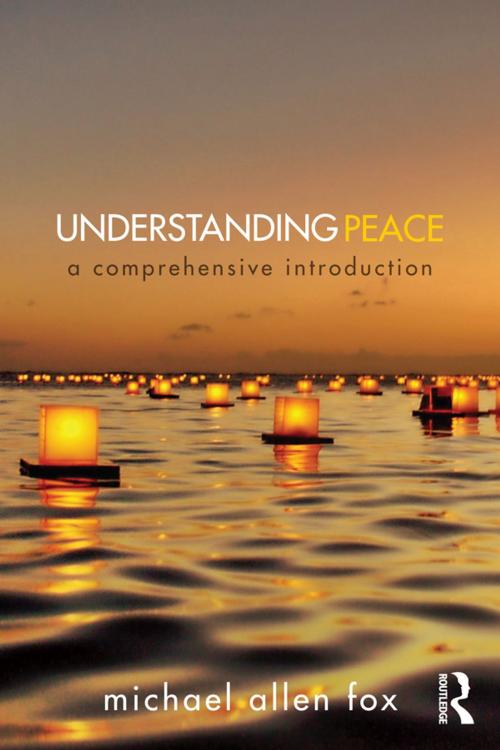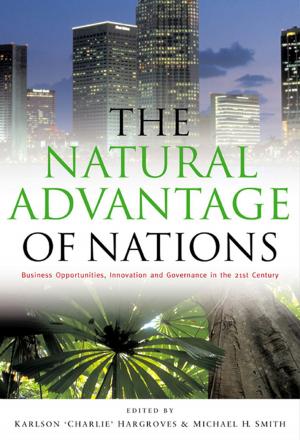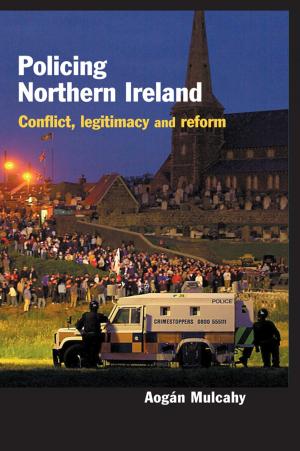| Author: | Michael Allen Fox | ISBN: | 9781134745876 |
| Publisher: | Taylor and Francis | Publication: | November 12, 2013 |
| Imprint: | Routledge | Language: | English |
| Author: | Michael Allen Fox |
| ISBN: | 9781134745876 |
| Publisher: | Taylor and Francis |
| Publication: | November 12, 2013 |
| Imprint: | Routledge |
| Language: | English |
Understanding Peace: A Comprehensive Introduction fills the need for an original, contemporary examination of peace that is challenging, informative, and empowering. This well-researched, fully documented, and highly accessible textbook moves beyond fixation on war to highlight the human capacity for nonviolent cooperation in everyday life and in conflict situations. After deconstructing numerous ideas about war and explaining its heavy costs to humans, animals, and the environment, discussion turns to evidence for the existence of peaceful societies. Further topics include the role of nonviolence in history, the nature of violence and aggression, and the theory and practice of nonviolence. The book offers two new moral arguments against war, and concludes by defining peace carefully from different angles and then describing conditions for creating a culture of peace. Understanding Peace brings a fresh philosophical perspective to discussions of peace, and also addresses down-to-earth issues about effecting constructive change in a complex world. The particular strength of Understanding Peace lies in its commitment to reflecting on and integrating material from many fields of knowledge. This approach will appeal to a diverse audience of students and scholars in peace studies, philosophy, and the social sciences, as well as to general-interest readers.
Understanding Peace: A Comprehensive Introduction fills the need for an original, contemporary examination of peace that is challenging, informative, and empowering. This well-researched, fully documented, and highly accessible textbook moves beyond fixation on war to highlight the human capacity for nonviolent cooperation in everyday life and in conflict situations. After deconstructing numerous ideas about war and explaining its heavy costs to humans, animals, and the environment, discussion turns to evidence for the existence of peaceful societies. Further topics include the role of nonviolence in history, the nature of violence and aggression, and the theory and practice of nonviolence. The book offers two new moral arguments against war, and concludes by defining peace carefully from different angles and then describing conditions for creating a culture of peace. Understanding Peace brings a fresh philosophical perspective to discussions of peace, and also addresses down-to-earth issues about effecting constructive change in a complex world. The particular strength of Understanding Peace lies in its commitment to reflecting on and integrating material from many fields of knowledge. This approach will appeal to a diverse audience of students and scholars in peace studies, philosophy, and the social sciences, as well as to general-interest readers.















